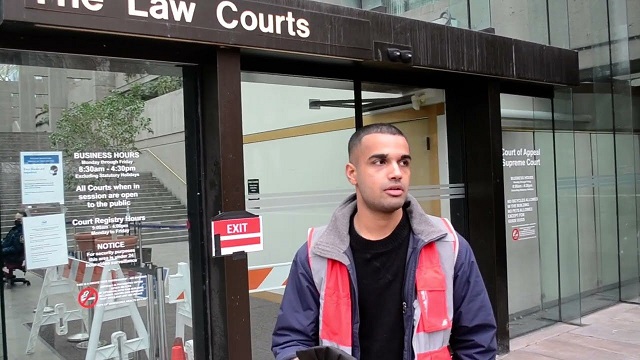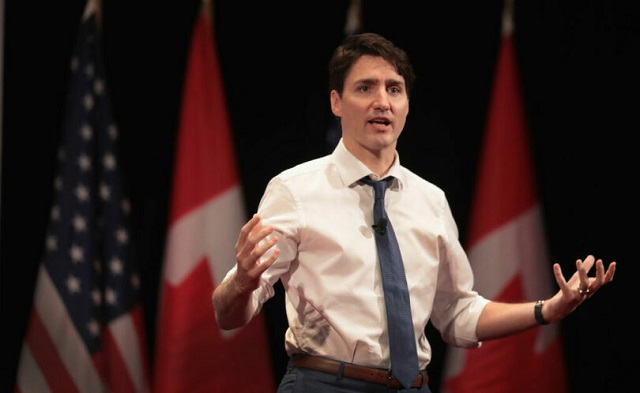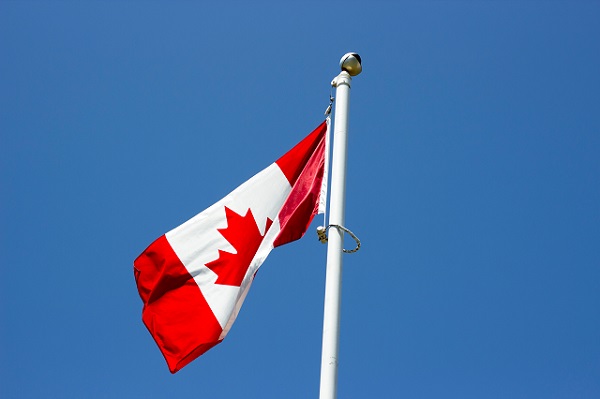Alberta
Just 28 new COVID cases reported in Alberta, but 3 more deaths for a total of 32

From the Province of Alberta
Update 27: COVID-19 pandemic in Alberta (April 9)
There are now 592 confirmed recovered cases of COVID-19 in the province.
With 28 new cases reported, the total number of cases in Alberta is 1,451.
Another three Albertans have died since the last report, bringing the total deaths in the province to 32.
Latest updates
- Expanded access to testing has begun to better trace the spread of COVID-19 in hard-hit areas and in vulnerable residents.
- Albertans are strongly encouraged to stay home and in the province this long weekend.
- Cases have been identified in all zones across the province:
- 878 cases in the Calgary zone
- 376 cases in the Edmonton zone
- 97 cases in the North zone
- 72 cases in the Central zone
- 26 cases in the South zone
- Two cases in zones yet to be confirmed
- Of these cases, there are currently 47 people in hospital, 14 of whom have been admitted to intensive care units (ICU).
- 192 cases are suspected of being community acquired.
- There are now a total of 592 confirmed recovered cases.
- Two new deaths are from the Calgary zone, bringing the total in this zone to 22. One additional person has died in the Edmonton zone, bringing the number of deaths to five in this zone. Four people have died in the North zone, and one person has died in the Central zone.
- Stronger outbreak measures have been put in place at continuing care facilities. To date, 151 cases have been confirmed at these facilities.
- There have been 68,116 people tested for COVID-19 and a total of 70,247 tests performed by the lab. There were 1,333 people tested in the last 24 hours.
- Aggregate data, showing cases by age range and zone, as well as by local geographic areas, is available online at alberta.ca/covid19statistics.
- All Albertans need to work together to help prevent the spread and overcome COVID-19.
- Restrictions remain in place for all gatherings and close-contact businesses, dine-in restaurants and non-essential retail services. A full list of restrictions is available online.
- Tighter restrictions have been placed on visitors to continuing care centres, group homes and other facilities. No visitors will be allowed unless a resident is dying or the visitor is essential for delivering care that cannot be delivered by staff.
- As Albertans look forward to the holiday weekend, they are being reminded to:
- avoid gatherings outside of their immediate household
- visit over coffee remotely and virtually
- try to shop for groceries outside of peak hours
- limit Easter egg hunts to inside or on their property
- find ways to connect while being physically separated
- worship in a way that does not put people at risk, including participating in virtual or live-streamed religious celebrations
More guidelines for faith-based organizations can be found online.
Expanding testing to meet needs of Albertans
Alberta is expanding access to COVID-19 laboratory tests to better trace the spread of the novel coronavirus in hard-hit areas and in vulnerable residents. Testing is now being offered to three additional groups of individuals exhibiting symptoms of COVID-19 including cough, fever, runny nose, sore throat or shortness of breath:
- symptomatic people living in the Calgary Zone
- symptomatic people who live with someone aged 65 years or older
- essential workers whose workplaces remain accessible to the public
Read the full list of people eligible for testing here. People can access tests by completing the COVID-19 self-assessment online.
The chief medical officer of health will examine and adjust testing protocols and access to COVID-19 tests based on the changing situation in Alberta.
Stay home and in Alberta this long weekend
Albertans are being strongly encouraged to stay home, in their communities, in the province and off the highways this long weekend to reduce the spread of COVID-19.
Alberta and British Columbia have released a joint statement asking families and friends to stay in their home provinces and celebrate the holidays virtually. This will reduce the risk of highway crashes – tying up emergency and medical responders who are busy with pandemic planning and care – and help slow the spread of the novel coronavirus between families and provinces.
COVID-19 health care for out-of-country visitors
To limit the potential spread of the novel coronavirus, individuals visiting Alberta from another country will receive physician and hospital services for the treatment of COVID-19 – even if they do not have health coverage or the ability to pay. This temporary measure will protect Albertans and encourage visitors to obtain treatment for COVID-19. Physicians may submit claims for this service using the new COVID-19 billing process. More information about the billing process will be provided to physicians.
Alberta Connects Contact Centre
The Alberta Connects Contact Centre continues to operate over the long weekend, and will be available to Albertans from 8:15 a.m. to 4:30 p.m., April 10-13. Direct lines to specific services (such as MyAlberta Digital Identity) will be closed. Albertans should call 310-4455 for assistance.
Access to justice
The Alberta Court of Appeal has provided an update regarding electronic hearings. More information: https://albertacourts.ca/ca/publications/announcements
Mental health supports
Confidential supports are available to help with mental health concerns. The Mental Health Help Line 1-877-303-2642 and the Addiction Help Line at 1-866-332-2322 are available between 7 a.m. and 11 p.m., seven days a week. Online resources provide advice on handling stressful situations or ways to talk with children.
Family violence prevention
A 24-hour Family Violence Information Line is available at 310-1818 to get anonymous help.
Alberta’s One Line for Sexual Violence is available at 1-866-402-8000 from 9 a.m. to 9 p.m. in more than 170 languages.
Information sheets and other resources on family violence prevention are available at alberta.ca/COVID19.
Quick facts
- The most important measures that Albertans can take to prevent respiratory illnesses, including COVID-19, is to practise good hygiene.
- This includes cleaning your hands regularly for at least 20 seconds, avoiding touching your face, coughing or sneezing into your elbow or sleeve, disposing of tissues appropriately.
- Anyone who has health concerns or is experiencing symptoms of COVID-19 should complete an online COVID-19 self-assessment.
- For recommendations on protecting yourself and your community, visit alberta.ca/COVID19.
Alberta
Former senior financial advisor charged with embezzling millions from Red Deer area residents

News release from Alberta RCMP
Former senior financial advisor charged for misappropriating nearly $5 million from clients
On April 4, 2024, the RCMP’s Provincial Financial Crime Team charged a Calgary resident for fraud-related offences after embezzling millions of dollars from his clients while serving as a senior financial advisor.
Following a thorough investigation, the accused is alleged to have fraudulently withdrawn funds from client accounts and deposited them into bank accounts he personally controlled. A total of sixteen victims were identified in the Red Deer area and suffered a combined loss of nearly $5 million.
Marc St. Pierre, 52, a resident of Calgary, was arrested and charged with:
- Fraud over $5,000 contrary to section 380(1)(a) of the Criminal Code; and,
- Theft over $5,000 contrary to section 344(a) of the Criminal Code.
St. Pierre is scheduled to appear in Red Deer Provincial Court on May 14, 2024.
“The ability for financial advisors to leverage their position to conduct frauds and investment scams represents a significant risk to the integrity of Alberta’s financial institutions. The investigation serves as an important reminder for all banking clients to regularly check their accounts for any suspicious activity and to report it to their bank’s fraud prevention team.”
- Sgt. John Lamming, Provincial Financial Crime Team
The Provincial Financial Crime Team is a specialized unit that conducts investigations relating to multi-jurisdictional serious fraud, investments scams and corruption.
Alberta
Political parties will be part of municipal elections in Edmonton and Calgary pilot projects

Strengthening Alberta’s local elections
Alberta’s government is introducing legislation to ensure Albertans can rely on transparent, free and fair elections, and municipally-elected officials have clearer accountability measures.
In a democratic society, Albertans expect their local elections to be free and fair, and their elected officials to be held to account by clear rules that govern their local councils. The Municipal Affairs Statutes Amendment Act proposes amendments to the Local Authorities Election Act (LAEA) and the Municipal Government Act (MGA) to add greater transparency to local election processes and ensure local councils and elected officials continue to remain accountable to the citizens who elected them.
“Our government is committed to strengthening Albertans’ trust in their local governments and the democratic process that elects local leaders. The changes we are making increase transparency for Alberta voters and provide surety their votes will be counted accurately. We know how important local democracy is to Albertans, and we will work with local authorities to protect and enhance the integrity of local elections.”
Local Authorities Election Act
Albertans expect free and fair elections and that’s why it’s important we strengthen the rules that govern local elections. To strengthen public trust in local elections, Alberta’s government will eliminate the use of electronic tabulators and other automated voting machines. All Albertans should be able to trust the methods and results of local elections; requiring all ballots to be counted by hand, clarifying rules and streamlining processes for scrutineers will provide voters greater assurance in the integrity of the results.
All eligible Albertans should be able to vote in local elections without impediment. Alberta’s government will limit the barriers for eligible voters to cast a ballot by expanding the use of special ballots. Currently, special ballots can only be requested for very specific reasons, including physical disability, absence from the municipality, or for municipal election workers. By expanding the use of special ballots, the government is encouraging more voter participation.
Amendments in the Municipal Affairs Statutes Amendment Act would increase transparency in local elections by enabling political parties at the local level. Political parties would be enabled in a pilot project for Edmonton and Calgary. The act will not require candidates to join a political party in order to run for a local or municipal office, but will create the opportunity to do so.
In addition, proposed changes to the Local Authorities Election Act would allow municipalities the option to require criminal record checks for local candidates, thus increasing transparency and trust in candidates who may go on to become elected officials.
Municipal Government Act
The role of an elected official is one with tremendous responsibility and expectations. Changes proposed to the Municipal Government Act (MGA) will strengthen the accountability of locally elected officials and councils. These include requiring mandatory orientation training for councillors, allowing elected officials to recuse themselves for real or perceived conflicts of interest without third-party review and requiring a councillor’s seat to become vacant upon disqualification.
If passed, the Municipal Affairs Statutes Amendment Act will also unlock new tools to build affordable and attainable housing across Alberta. Proposed amendments under the MGA would also create more options for municipalities to accelerate housing developments in their communities. Options include:
- Exempting non-profit, subsidized affordable housing from both municipal and education property taxes;
- Requiring municipalities to offer digital participation for public hearings about planning and development, and restricting municipalities from holding extra public hearings that are not already required by legislation; and
- Enabling municipalities to offer multi-year residential property tax exemptions.
Municipal Affairs will engage municipalities and other partners over the coming months to hear perspectives and gather feedback to help develop regulations.
Quick facts
- The LAEA establishes the framework for the conduct of elections in Alberta municipalities, school divisions, irrigation districts and Metis Settlements.
- The MGA establishes the rules governing the conduct of local elected officials once on council, as well as the overall administration and operation of municipal authorities in Alberta, including any policy those authorities may wish to implement.
Related information
-

 Business1 day ago
Business1 day agoDon’t be fooled by high-speed rail
-

 Alberta1 day ago
Alberta1 day agoActivity-Based Hospital Funding in Alberta: Insights from Quebec and Australia
-

 Business1 day ago
Business1 day agoUN plastics plans are unscientific and unrealistic
-

 Business1 day ago
Business1 day agoTaxpayers criticize Trudeau and Ford for Honda deal
-

 Fraser Institute1 day ago
Fraser Institute1 day agoCanadians should decide what to do with their money—not politicians and bureaucrats
-

 Addictions1 day ago
Addictions1 day agoBritish Columbia should allow addicts to possess even more drugs, federal report suggests
-

 Alberta1 day ago
Alberta1 day agoPolitical parties will be part of municipal elections in Edmonton and Calgary pilot projects
-

 Bruce Dowbiggin1 day ago
Bruce Dowbiggin1 day agoCome For The Graduate Studies, Stay For The Revolution








